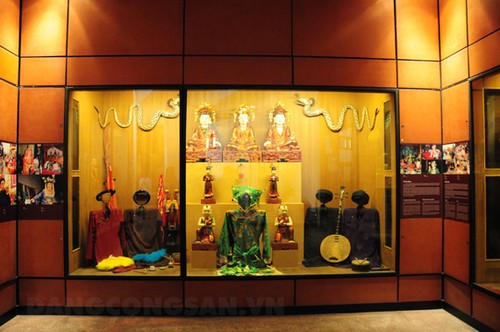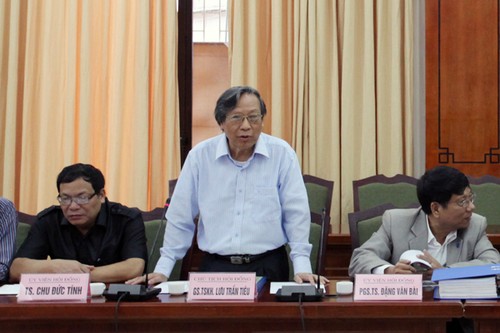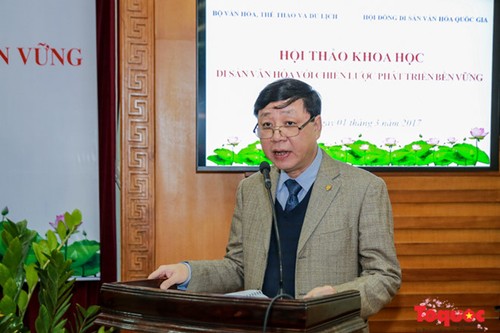(VOVworld) – A museum is a place to preserve and uphold a country’s cultural and historical heritage. In recent years, the Vietnamese government has paid closer attention to using museums to improve people’s spiritual and cultural life and attract more visitors.
 |
| The Vietnam Museum of Ethnology is currently considered the No 1 museum in Vietnam thanks to its display. (Photo: dangcongsan.vn) |
Vietnam has 134 national and provincial museums and 31 private museums. To improve the quality of museums Doctor Luu Tran Tieu, President of the National Cultural Heritage Council, suggests: “Museums have stepped up their reforms in display, application of science and technology, and digitalization of materials and objects. It’s necessary to turn museums into non-school education centers to enrich public knowledge. The museums should also develop marketing strategies, diversify interactive activities and link museum programs and tourism.”
 |
| Professor Luu Tran Tieu (standing in the middle), President of the National Cultural Heritage Council. (Photo: Thethaovanhoa.vn) |
Nguyen The Hung, Director of the Heritage Deprtment of the Ministry of Culture, Sports, and Tourism, said the better museum are preserved, the more knowledge museum goers will have through which the national culture, image, and people will be promoted.
 |
| Doctor Nguyen The Hung, Director of the Heritage Department of the Ministry of Culture, Sports, and Tourism. (Photo: Thethaovanhoa.vn) |
Hung noted that the most important point in the preservation of cultural heritage, including museums, is to harmonize State and community benefits, adding: “The State should improve the legal system and promulgate more preferential treatment policies for artisans. It’s essential to attach importance to management training for the culture sector. Preservation means to combine with contemporary factors based on careful discussions.”
Another important factor is conservation techniques which must combine traditional methods and advanced technologies.
Doctor Vo Quang Trong, Director of the Vietnam Museum of Ethnology, said that the conservation of museums should involve the entire community, who will then receive cultural values from museums.
“Conservation in museums will leave positive impacts on the community. A museum is a place to preserve historical values and pass down traditional crafts,” said Trong.
Among the private museums in Vietnam, the three best museums are the Dong Que (Countryside) in Nam Dinh province, the Coi Nguon (Origin) on Phu Quoc Island, and the Hoang Long in Thanh Hoa. Doctor Pham Quoc Quan, former Director of the National History Museum, says unqualified personnel is the problem facing most private museums.
According to Quan, “The involvement of all of society is needed but requires great support from state cultural management agencies and professional organizations and associations. Joint efforts of the whole society can help private museums develop sustainably.”